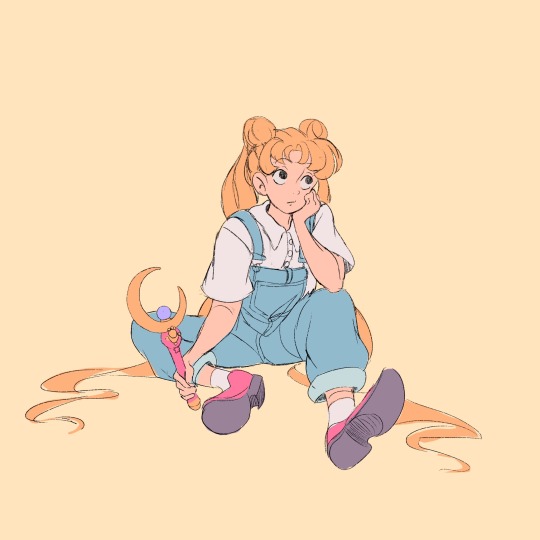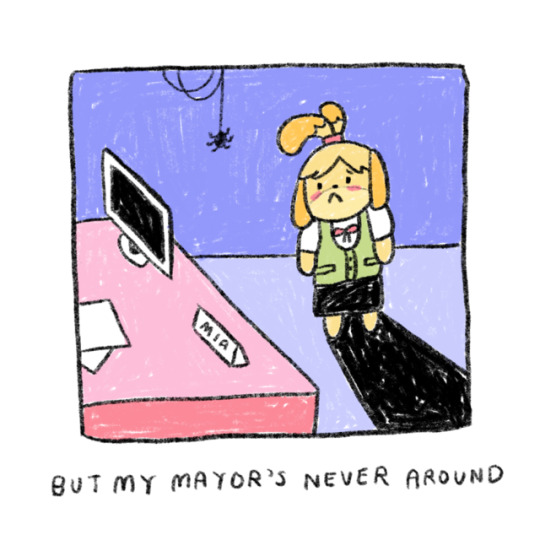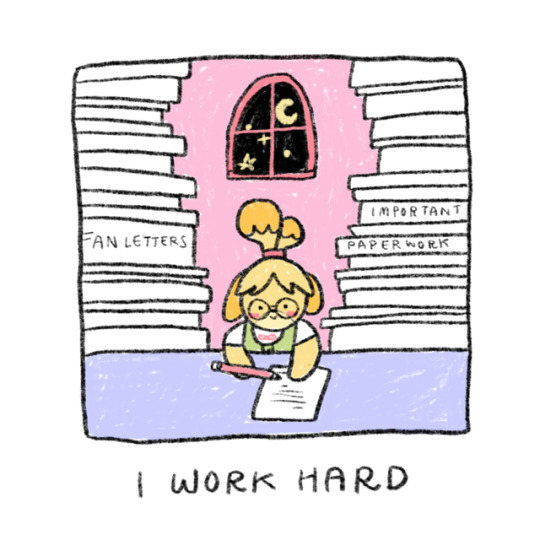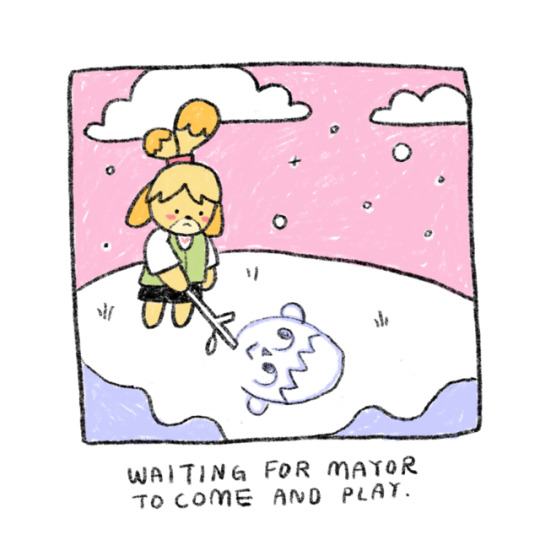Photo

OOOOOOOOOOOOOOOOH YEEEEEEEEEEEEEEEEEEES !!!!
Animal crossing 2019 !!!
42K notes
·
View notes
Text
I want to say Thank You to everyone who has followed me over the years. I appreciate everyone who came on this journey with me. As I work on shutting down this blog please keep in touch on my social media! 💋
Twitter: @nocemiss
Website: isabellalprice.com
Instagram: @isabellalprice
16 notes
·
View notes
Photo









Some of the funniest, weirdest or most adorable cartoons by Gahan Wilson you can find online. He’s currently fighting dementia and his wife, author Nancy Winters, passed away yesterday. She was the one really taking care of him and their son has set up a gofundme to cover Wilson’s memory care:
https://www.gofundme.com/gahan-wilson-team-effort
2K notes
·
View notes
Text
I just remembered the all girl spiderverse spin off is gonna be written by those people that write V*ltr*n and do I trust those bitches with Cindy Moon? Absolutely fucking not when all I hear about that show is racist gay baiting trash lwmffjennsn
7K notes
·
View notes
Photo


Anyone else remember that plunging neckline on Jin as he unabashedly showed off all this cleavage in the first Tekken Tag intro? Pepperidge Farms remembers
128 notes
·
View notes
Text
i think one of the reasons fandom is so unwilling to criticise itself is because its internalised the simplified whitefem logic of how female gaze=progressive, fandom=female gaze, therefore fandom=progressive and uses it in a way as to never examine the social constructs that the gaze was built upon, like what factors attractiveness/desire arise from.
you could say that fandom is the female gaze in its most tangible, autonomous form - it’s media for women by women, without bureaucracy and hurdles and censorship, something that never had the chance to develop because mainstream media for women is usually controlled by men. there are very few creative spaces that offer the anonymity and autonomy of internet fandom where we can all truly let our freak flags fly.
but that doesn’t mean female gaze is absolved of the issues that permeates typical forces of oppression. the female gaze is aimed at different directions, and it ranges from sexual attraction to escapist fantasy, but the female gaze when it becomes an en-masse multi-community movement has the swaying power to focus on certain characters, ships and narratives. and when it does, it paints a very telling picture of who and what it values.
female gaze regards desire/attraction first, and in white supremacist culture this means the hierarchy of white dudes, then white women, then men of colour, then women of colour. looking at overall patterns in who gets written about and who gets shunned, female gaze in fandom patterns seems to be pretty representative of the social hierarchy that ranks most-to-least valuable/humanised people.
introduction to fandom studies tells us about the values of fandom as mostly-female created space, but it rarely goes beyond that. the female gaze can be racist. it can be imperialist, ableist, transphobic, misogynistic, despite it being a concept that aims to subvert the male gaze because it did not develop in a vacuum; it developed in a society that’s oppressive and marginalising, therefore it bears the capacity of being equally oppressive and marginalising just like all other forms of media.
fandom as a manifestation of the female gaze may be more progressive than male-controlled mainstream media, but doesn’t mean it’s automatically absolved of the social issues it was born in.
7K notes
·
View notes
Photo
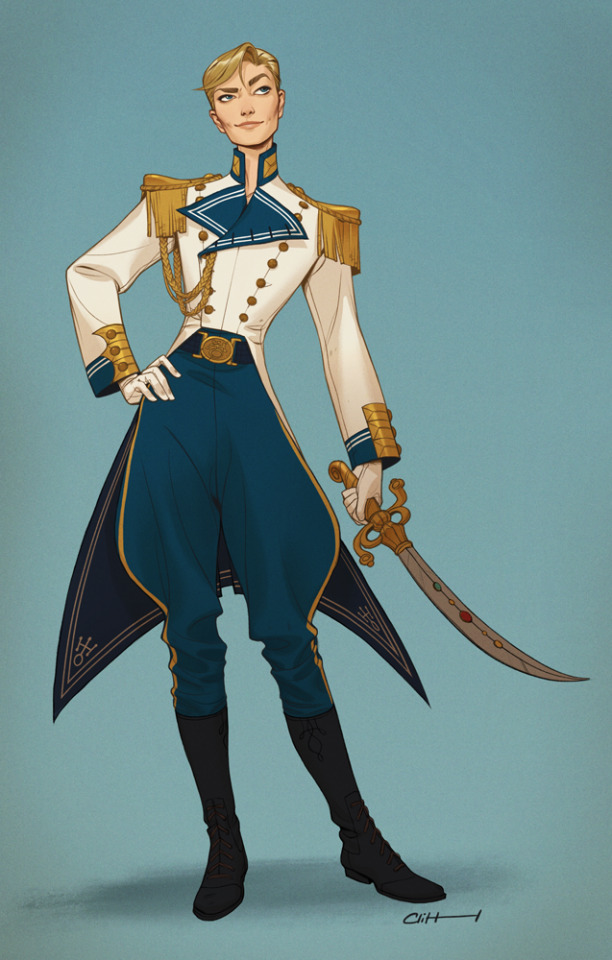
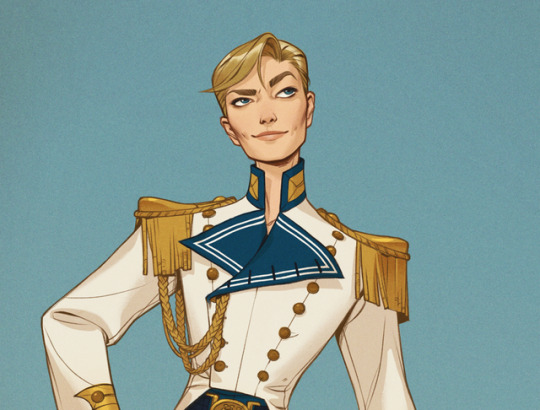
redid my 1890’s naval officer Sailor Uranus design from a couple years back!
I’ve always felt like I really missed the mark when it came to capturing Haruka’s effortless rakishness on the first pass, and I wasn’t about to let that happen AGAIN
22K notes
·
View notes
Link
Words by: Tasha Spillett / Art by: Natasha Donovan / Portage & Main Press
Just in time for Women’s History month comes this offering from Portage & Main Press centering an group that we rarely see represented anywhere in most media: Indigenous people and especially Indigenous girls and women. Familiar with Portage & Main Press when I picked up and read A Girl Called Echo, Vol. 1 (Pemmican Wars) penned by Métis writer Katherena Vermette, I figured that I’d once again be able to read another graphic novel centering these women handled by a female creative team and this time both members with an Indigenous background. This graphic novel features two best friends, Miikwan and Dez, and chronicles their struggles not only being young but Indigenous young women navigating a world that historically hasn’t been kind to those who look like them. Miikwan is Anishinaabe, and Dez is Inninew. Their friendship is strong, something akin to sisters, and they find themselves tested like never before.
This is writer Spillett’s debut graphic novel, and I couldn’t be happier to have a narrative written about Indigenous girls from an Indigenous woman who writes that she is most heart-tied to contributing to community-led work that centers on land and water defense, and the protection of Indigenous women and girls. As an educator, poet, and emerging scholar who draws her strength from both her Nehiyaw and Trinidadian bloodlines, I’m furthermore happier to see an educator writing a book about Brown girls aimed at tween and teen readers.

WHEW. The narrative presented in this comic offering does several things, and it’s done so right–this work is not only centering Indigenous girls and women but also giving us a beautiful glimpse of sisterhood. Miikwan and Dez celebrate each other, their coming into womanhood together, fret, fall victim to fear, try to protect each other and ultimately make it back to each other. There was a world wind of emotions I experienced reading and following along in their journey; sometimes I wept, other times I cheered, and smiling at them being together and safe.
I picked up on the strong sense of community portrayed on the pages, from a parent who pops in with a family heirloom when needed with a kind word, to a counselor at school who takes one girl aside to listen and offer a spiritual resolution that honors ancestors, and to a female stranger who comes to the aid of a runaway teen girl. Spillett pens a tale where community matters and kinfolk ain’t just your skin folk and the narrative is strengthened as a result. There are so many stereotypes that plague People of Color, Native and Indigenous people don’t escape this reality, yet in this book there are no gross jokes beaten into our consciousness. They are no unfortunate caricatures of the folks who walked these lands before colonization disrupted their ways of life.

Read on here. [x]
98 notes
·
View notes
Photo


Women Warriors of the Afro-Latina Diaspora (2012)
“My housewife mother turned into a raging warrior woman when the principal of my elementary school questioned whether her daughter and the children of my public school had the intelligence to pass a citywide test,” Marta Moreno Vega writes in her essay. She knew then she was loved and valued, and she learned that to be an Afro-Puerto Rican woman meant activism was her birth right.
Hers is one of eleven essays and four poems included in this volume in which Latina women of African descent share their stories. The authors included are from all over Latin America Brazil, the Dominican Republic, Haiti, Panama, Puerto Rico and Venezuela and they write about the African diaspora and issues such as colonialism, oppression and disenfranchisement. Diva Moreira, a black Brazilian, writes that she experienced racism and humiliation at a very young age. The worst experience, she remembers, was when her mother’s bosses told her she didn’t need to go to school after the fourth grade, “because blacks don’t need to study more than that.“
The contributors span a range of professions, from artists to grass-roots activists, scholars and elected officials. Each is deeply engaged in her community, and they all use their positions to advocate for justice, racial equality and cultural equity. In their introduction, the editors write that these stories provide insight into the conditions that have led Afro-Latinas to challenge systems of inequality, including the machismo that is still prominent in Spanish-speaking cultures.
A fascinating look at the legacy of more than 400 years of African enslavement in the Americas, this collection of personal stories is a must-read for anyone interested in the African diaspora and issues of inequality and racism.
by Marta Moreno Vega (Author, Editor), Marinieves Alba (Author, Editor), Yvette Modestin (Author, Editor)
Get it here
Marta Moreno Vega is the founder of the Caribbean Cultural Center African Diaspora Institute (CCCADI). She led El Museo del Barrio, is one of the founders of the Association of Hispanic Arts, and founded the Network of Centers of Color and the Roundtable of Institutions of Colors. Vega is also a visual artist and an Afro-Latina activist.
[Follow SuperheroesInColor faceb / instag / twitter / tumblr / pinterest]
2K notes
·
View notes
